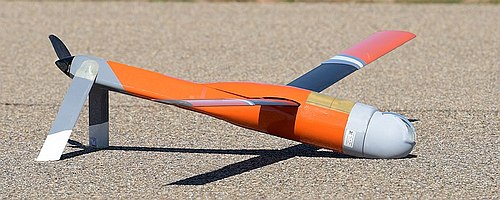Podcast: Play in new window | Download (Duration: 30:08 — 20.7MB)
United Airlines plans to provide eVTOL service, hydrogen transportation for fuel cell UAVs, flying an uncrewed aircraft through a hurricane, drones meet law enforcement and privacy, and drones for STEM.
UAV News
United First Major Airline to Move on Electric Planes Starting with Uber-Like Service to Airports
United Airlines plans to have a role in the urban air mobility market with “last mile” transportation between airports and urban destinations using low-emission electric vertical takeoff and landing (eVTOL) aircraft.
The United eVTOL will be developed by partner Archer and carry four passengers up to 60 miles at speeds up to 150 miles per hour. United and regional affiliate Mesa Airlines have committed to purchase up to 200 of the planes in a deal valued at $1 billion.
High-Pressure Valve Developed for UAV Hydrogen Transportation
Without a special rated valve, transportation of full UAV-compatible hydrogen cylinders is not permitted. In the EU, the Transportable Pressure Equipment Directive (TPED) specifies the safety requirements for transportable pressure equipment used exclusively for the transport of dangerous goods (Class 2) within the Union. Transportable pressure equipment is required to bear the Pi marking to indicate compliance with the directive. The US DoT also has a similar requirement.
Intelligent Energy, which offers hydrogen fuel cell modules and accessories for UAVs, developed the rated Pressure Tech CV414 valve. With it, you can transport full cylinders of hydrogen for powering drones. Andy Kelly, Head of UAV Product Development at Intelligent Energy says, “Now full UAV compatible cylinders can be transported; the next logical step is to get them delivered directly to our customers. We want it to be as straightforward as ordering barbecue gas and getting empty cylinders collected.”
Promotional video: Fuel cell power for UAVs
Drones That Hunt Hurricanes – NOAA Puts Some To The Test
Last month, NOAA scientists launched a small research drone from a Hurricane Hunter plane to collect weather data used for hurricane forecasts. The Altius-600 uncrewed aircraft created by Area-I was adapted for sampling weather data, can fly up to four hours and up to 265 miles, and is not recoverable after being used in a storm.

The Altius-600 is the first of three small uncrewed aircraft systems NOAA is testing. The research supports NOAA’s Uncrewed Systems Strategy to expand the use of uncrewed systems. The development and testing of the uncrewed systems is also supported by NOAA’s Small Business Innovation Research Program.
Florida Legislation Could Bolster Police Use of Drones
State Senate Bill 44 unanimously passed the Florida Senate’s Criminal Justice Committee. It expands the use of drones by law enforcement and government agencies. Under the bill, drones could be used to assist with traffic management (but not to issue a ticket based on images or video captured by a drone), assist in collecting evidence at a crime scene or traffic crash scene. assess damage after natural disasters, and assist fire department personnel. The Electronic Frontier Foundation (EFF) has raised privacy concerns. The bill is under review by the Senate’s Military and Veterans Affairs, Space, and Domestic Security Committee.
Drones for Schools: The North Carolina Educator UAS Cohort is a Model that Works
The North Carolina Educators UAS Cohort (NCEUASC) provides educators with support and training so they can effectively adopt drones as a tool in a STEAM curriculum. The Cohort provided all members with a Tello EDU fly more kit, as well as a one-year membership to drone curriculum provider DroneBlocks. The UAS Cohort is a partnership between the North Carolina Business Committee for Education, the North Carolina DOT, Nine Ten Drones, STEMERALD City, and media partner, Dronelife. In May 2021, the NCEUASC will be hosting a virtual competition for North Carolina students.
